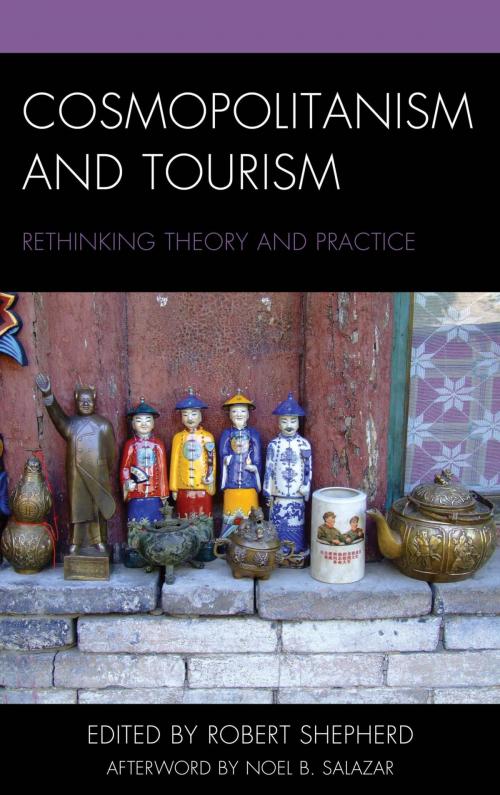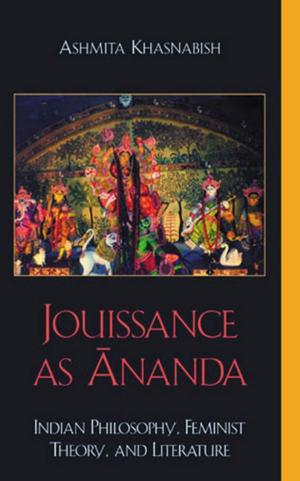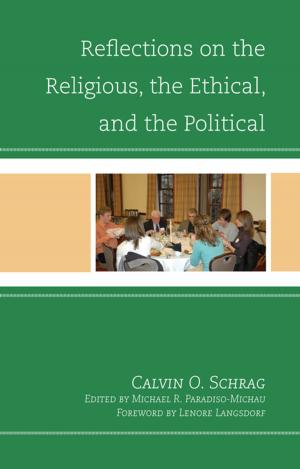Cosmopolitanism and Tourism
Rethinking Theory and Practice
Nonfiction, Social & Cultural Studies, Social Science, Anthropology, Sociology| Author: | Adam Kaul, Ben Feinberg, Sarah E. Edwards, Rebecca L. Nelson, David Geary, Alex Jong-Seok Lee, Cherubim Quizon, Clare A. Sammells, Noel B. Salazar, Robert Shepherd | ISBN: | 9781498549783 |
| Publisher: | Lexington Books | Publication: | December 12, 2017 |
| Imprint: | Lexington Books | Language: | English |
| Author: | Adam Kaul, Ben Feinberg, Sarah E. Edwards, Rebecca L. Nelson, David Geary, Alex Jong-Seok Lee, Cherubim Quizon, Clare A. Sammells, Noel B. Salazar, Robert Shepherd |
| ISBN: | 9781498549783 |
| Publisher: | Lexington Books |
| Publication: | December 12, 2017 |
| Imprint: | Lexington Books |
| Language: | English |
Within tourism studies, the cosmopolitan potentials of tourism have often been situated within a broader conversation about globalization, an approach that implies that cosmopolitanism is a predictable by-product of globalization and becoming more cosmopolitan should be the goal of travel. And yet a fundamental value of a cosmopolitan outlook—namely, to not only to be “at home in the world” but also to experience the world in an authentic sense—depends on the culturally embedded, parochial, and particular world views which it rejects. In Cosmopolitanism and Tourism: Rethinking Theory and Practice, contributors take this as a starting point. What does a “worldly” consciousness mean to people situated in different cultural landscapes and to what extent might these intersect with cosmopolitan values? How is cosmopolitanism marketed in tourism and tourist-related industries such as service learning and study abroad? And finally, what roles do social and economic class, educational background, gender, and other factors have in cosmopolitan claims? The contributors to this edited collection address these questions in a series of case studies that range from Guatemala, Bolivia, and Ireland to China, India, and Dubai.
Within tourism studies, the cosmopolitan potentials of tourism have often been situated within a broader conversation about globalization, an approach that implies that cosmopolitanism is a predictable by-product of globalization and becoming more cosmopolitan should be the goal of travel. And yet a fundamental value of a cosmopolitan outlook—namely, to not only to be “at home in the world” but also to experience the world in an authentic sense—depends on the culturally embedded, parochial, and particular world views which it rejects. In Cosmopolitanism and Tourism: Rethinking Theory and Practice, contributors take this as a starting point. What does a “worldly” consciousness mean to people situated in different cultural landscapes and to what extent might these intersect with cosmopolitan values? How is cosmopolitanism marketed in tourism and tourist-related industries such as service learning and study abroad? And finally, what roles do social and economic class, educational background, gender, and other factors have in cosmopolitan claims? The contributors to this edited collection address these questions in a series of case studies that range from Guatemala, Bolivia, and Ireland to China, India, and Dubai.















